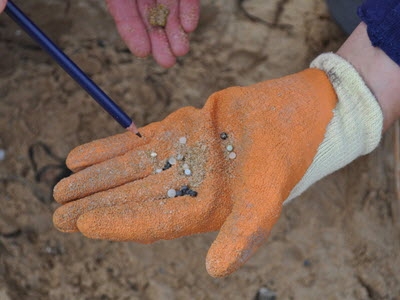Microplastics can spread through flying insects, research shows

A new study, published in the Journal Biology Letters, shows that plastic now contaminates our skies as well as our oceans. Microplastics (MPs) have made their way from polluted water into new environments through flying insects such as mosquitoes.
Microplastics are tiny particles of plastic debris that are a by-product of the disposal and breakdown of plastic products and industrial waste. Many microplastics are fibres shed by synthetic clothing during washing – a single wash can release 700,000 fibres. Although there is little doubt that microplastics are harmful to the environment, there has been relatively little research done on the impacts of MPs on humans or the environment.
In a study done at the University of Reading in the UK, scientists fed microplastics to mosquito larvae, which live in water, but found that the particles remained inside the animals as they transformed into flying adults. These microplastics are then consumed by birds, bats, and spiders, when they feed on mosquitoes.
Professor Amanda Callaghan, who led the research project, explains the significance of this discovery:
“It is a shocking reality that plastic is contaminating almost every corner of the environment and its ecosystems. Much recent attention has been given to the plastics polluting our oceans, but this research reveals it is also in our skies.”
Just like oceans, freshwater lakes and streams are contaminated with microplastics. These MPs are showing up all around the world, in the oceans, marine life, remote Swiss mountains, and even our tap water. Many researchers believe that humans are consuming MPs through tap water, certain seafood, and even in some instances through sea salt.
The impacts of microplastics on the environment or humans are not yet known. Professor Callaghan explains the implications of this relatively unstudied pollutant, “This is a new pathway to get plastics up in the air and expose animals that are not normally exposed. We don’t know what the impact will be.”
The AIDF Global Summit will return to Washington D.C, in 2019.
If you’d like to stay informed on the latest updates in aid and development, please sign up for the AIDF newsletter.
Photo Credit: Richard Harrington















